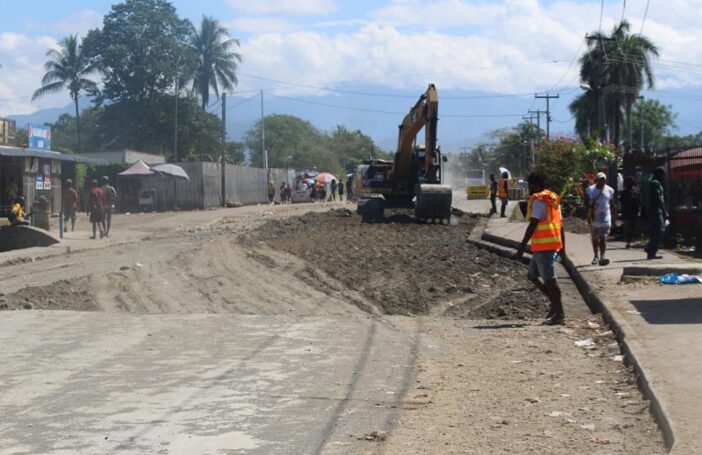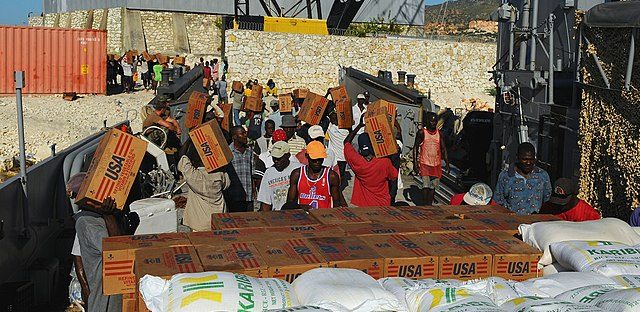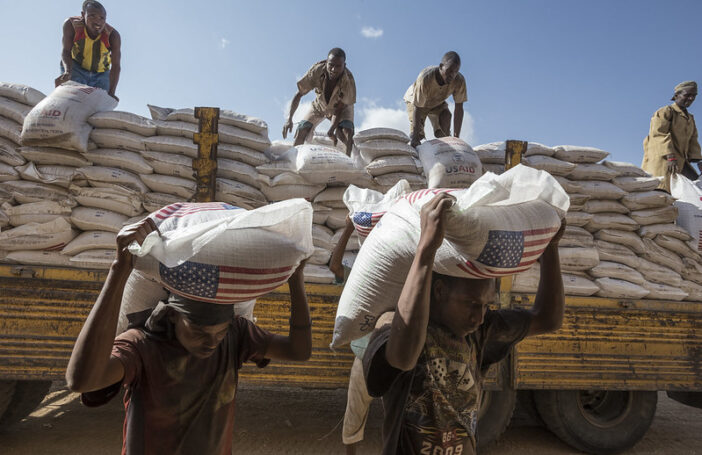People say the road to hell is paved with good intentions, but that has always struck me as nonsense. If you look at the sweep of history, all the really awful stuff was born of really awful intentions. Well-intended disasters don’t even make the top ten.
[IMPORTANT UPDATE: as pointed out by Roy in comments, the Guardian has corrected what seem to be some significant errors in their original article which I drew upon for this blog post. It looks as if at least some of the allegations made in the film are incorrect. Please make time to read the Guardian correction and then consider the rest of this post only bearing in mind what they got wrong].
And so it is with aid too. A lot of well-intended aid has failed to work (giving aid well is hard!) and some of it has even caused harm. But most of the worst outcomes, I would contend, came from aid that was not well intended in the first place: tied US food aid, aid to buy the allegiance of dictators. And if the allegations levelled against him by two documentary film makers prove to be true US televangelist Pat Robertson has just done a spectacularly good job of illustrating this point.
Chris McGreal reports in the Guardian on the allegations made in the film and things just keep getting worse. Starting with the unhelpful but not actually harmful:
One of the stranger sights of the refugee crisis that followed the 1994 Rwandan genocide was of stretcher-bearers rushing the dying to medical tents, with men running alongside reciting Bible verses to the withering patients.
The bulk of the thousands of doctors and nurses struggling to save lives – as about 40,000 people died of cholera – were volunteers for the international medical charity Médecins Sans Frontières (MSF). The Bible readers were hired by the American televangelist and former religious right presidential candidate, Pat Robertson, and his aid organisation, Operation Blessing International.
Moving to the dishonest:
Mission Congo [the movie]…describes how claims [by Robertson] about the scale of aid to Rwandan refugees were among a number of exaggerated or false assertions about the activities of Operation Blessing [Robertson’s charity] which pulls in hundreds of millions of dollars a year in donations, much of it through Robertson’s televangelism. They include characterising a failed large-scale farming project as a huge success, and claims about providing schools and other infrastructure.
On to the inept:
Jessie Potts, the operations manager for Robertson in Goma in 1994, told Mission Congo that the medicines that did arrive were not of great use in fighting the cholera epidemic…”We got a lot of Tylenol. Too much. I never did understand that. We got enough Tylenol to supply all of Zaire. God, I never saw as much in my life,” he said.
And finally to the truly awful:
Then, Potts said, suddenly everything changed. “Operation Blessing, several weeks into the operation, decided not to send any more medical teams,” he said. The flights to Goma dried up.
Robert Hinkle, the chief pilot for Operation Blessing in Zaire in 1994, said he received new orders. “They began asking me: can we haul a thousand-pound dredge over? I didn’t know what the dredging deal was about,” he said.
The documentary describes how dredges, used to suck up diamonds from river beds, were delivered hundreds of miles from the crisis in Goma to a private commercial firm, African Development Company, registered in Bermuda and wholly owned by Robertson. ADC held a mining concession near the town of Kamonia on the far side of the country…The pilot said he joined Operation Blessing to help people. Of the 40 flights he flew into Congo, just two delivered aid. The others were associated with the diamond mining. “We’re not doing anything for those people,” he said
Robertson denies the allegations and is threatening legal action against the film makers (he has a track record of litigation) but it appears as if the evidence is sound — many of the accusations were unearthed by an investigative journalist in the 1990s and confirmed through an investigation undertaken by the state of Virginia’s attorney general.
A lot of discussion and research on aid takes as a starting point good intentions and then develops explanations about how even well-intended work can go wrong. And this is very useful. But the Robertson case is a good reminder that some aid fails simply because the motives behind it are bad ones.





Dear Roy,
Thank you for your comment. I have placed an update in the post directing readers to it.
Terence
Let’s Set the Record Straight:
This story was first reported by The Guardian newspaper in the UK, who merely repeated the allegations made in the film. Once it was brought to their attention that their story was wrong, and after their own investigation, The Guardian published an apology to Operation Blessing and made a substantial donation for relief efforts…”Operation Blessing – An Apology: In an article entitled “Mission Congo: how Pat Robertson raised millions on the back of a non-existent aid project” we claimed that Pat Robertson ran an almost non-existent aid effort in Zaire, now the Democratic Republic of Congo. Operation Blessing actually sent six medical relief teams to Zaire, between July and December 1994, and arranged for 66,000lb of medicines and supplies to arrive in Goma on an aircraft it chartered from Amsterdam. In addition, the article referred to a report by the Virginia Office of Consumer Affairs (OCA) without making clear that there was a further report by the Attorney General’s Office (AGO) which found no evidence of wrongdoing by Operation Blessing or Pat Robertson and no evidence of intent to defraud. Operation Blessing has asked us to make clear that the report was signed off by four individuals at the AGO, none of whom received any donation from Pat Robertson or Operation Blessing. The article claimed a school and farm set up by Operation Blessing in Dumi had failed. We have been informed that the school is thriving and the farm remains operational to this day. We are happy to clarify the position and apologise to Operation Blessing. We have agreed to make a contribution to Operation Blessing to be used in its relief efforts for victims of the typhoon in the Philippines.”